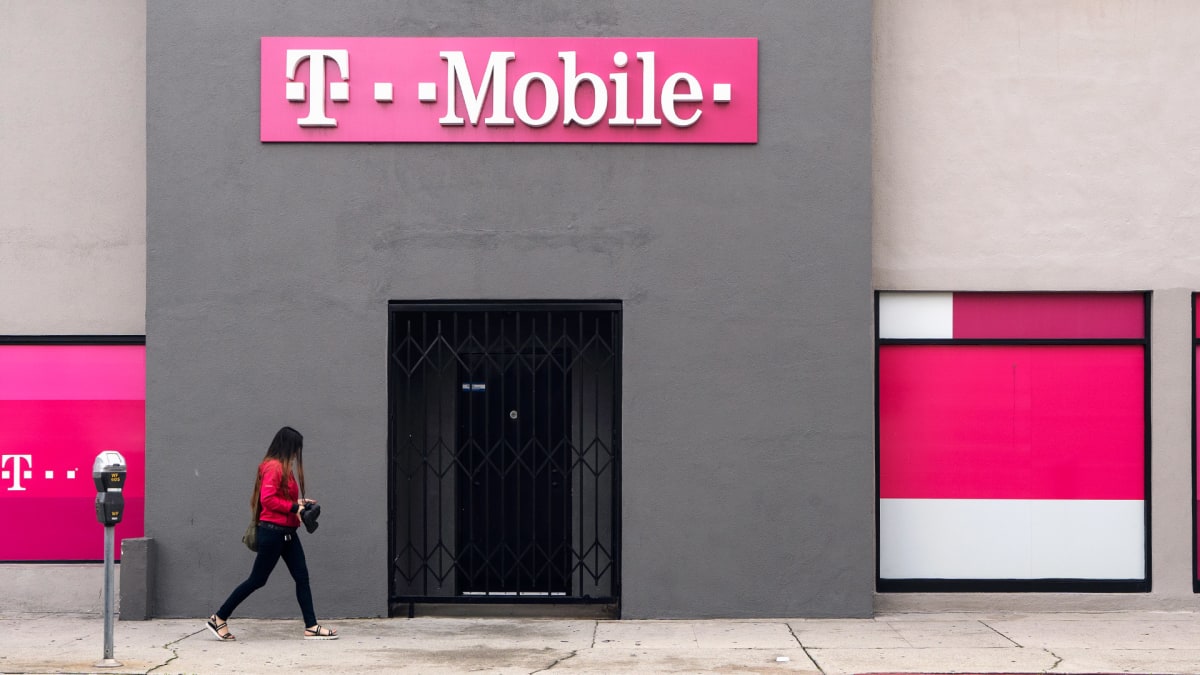
Former T-Mobile (TMUS) Chief Executive John Legere built the wireless carrier from an also-ran into a major player by relentlessly calling out Verizon (VZ) and AT&T (T) for their poor treatment of customers.
Over a few years, Legere forced his company's rivals to make major changes to longstanding policies that caused pain for consumers.
The outspoken CEO told consumers that things like long-term contracts and overage charges benefitted the carriers at the expense of their customers. T-Mobile slowly got rid of all of those customer pain points, which forced AT&T and Verizon to do the same.
DON'T MISS: What Information Hackers Got Hold of in T-Mobile's Massive New Data Breach
As it was happening, Legere acted like a pro wrestler or a boxing promoter, calling out his rivals and making fun of them. That's what he did in 2014 when T-Mobile became the first carrier to drop overage charges.
"Today I'm laying down a challenge to AT&T, Verizon, and Sprint to join T-Mobile in ending these outrageous overage penalties for all consumers -- because it's the right thing to do," said Legere.
"Overage fees are flat-out wrong. Agree with me? Join me in putting this challenge to all the major national carriers by signing my petition on Change.org. Right here. Take one minute to be a part of this consumer movement."
That was typical Legere, but it was also the blueprint for T-Mobile's success -- doing only things that its customers would see as positives.
Now, under current CEO Mike Sievert, T-Mobile appears to have lost some of that mojo.

Shutterstock/TheStreet
The Un-Carrier Makes Carrier-Like Moves
Under Legere, T-Mobile guarded its public image and never made moves perceived as unfriendly to consumers.
Sievert has been less careful about this method as the Un-carrier has made some carrier-like moves in recent months.
Back in November, for example, the company made a major change to its activation fee policy. The carrier earlier had waived its $35 activation fee for online orders. It dropped that policy in late 2022.
"The fee is charged per line that is added or upgraded via any method. Whether you’re upgrading your phone to a new device, adding a Bring-Your-Own-Device line, or even ordering a Home Internet line, you’ll pay the new $35 fee," writes The T-Mo Report.
Now, T-Mobile has decided to change another billing policy and it's actually following Verizon in doing it.
T-Mobile Making Another Fee Change
Currently, T-Mobile gives customers a $5 price break per month, per line if they pay via bank account, debit card, or credit card. That has generally been industry policy because the carriers don't want customers to have to manually make a payment.
The carrier plans to limit that discount to people who pay with a bank account or debit card "as soon as May," CNET first reported.
Customers can still pay their bills with a credit card, but they will no longer get the $5 discount.
A T-Mobile spokesperson told the technology website that the change is being made to "continue providing customers with the best value in wireless." He says the "majority of our customers use their bank account or debit card for AutoPay and will continue to get a discount on top of an already great rate plan value."
So, the Un-carrier, likely to save some credit-card fees, plans to make a very customer-unfriendly move.
That's certainly a change from Legere's blueprint and as these changes pile up, it runs the risk of turning a company that built its subscriber base by being a discrete alternative to AT&T and Verizon into just another carrier.







